
JIL LKLAM
Poètes urbains

Jil Lklam, Poètes urbains
La nouvelle scène musicale marocaine, apparue au milieu des années 90,
fait aujourd’hui pleinement partie du paysage culturel du pays.
Rappeurs, slameurs, reggaemen, créateurs de musique metal et autres
artistes (graffiti, break dance…), ont initié un véritable mouvement
urbain qui mêle les genres et écrit un Maroc multiculturel.
Jil Lklam, la génération des mots, livre le récit de son évolution, de
l’underground à la scène publique, en s’attachant plus particulièrement
aux textes des chansons, emblématiques d’une jeunesse qui « ouvre sa
gueule : sujets tabous, musique cool, textes hard ». Avec éloquence,
humour, sensibilité, colère, poésie, cette jeunesse créatrice et rebelle
exprime, dans ses paroles plurilingues — darija, amazigh, mêlées de
français, d’anglais ou d’espagnol —, son désir de dignité, de liberté,
d’avenir, comme l’amour de son pays.
Une génération d’artistes est bien née, qui révèle, en même temps que sa
vivacité et ses talents autodidactes d’écriture et de composition, un
dynamisme débrouillard pour se faire entendre : elle a adopté le « Do it
Yourself » de la contre-culture américaine de la fin des années 60,
l’échange et le partage solidaire ; elle utilise les nouvelles technologies et
les réseaux sociaux pour produire et diffuser sa musique.
À travers le récit de Dominique Caubet et Amine Hamma,
des entretiens avec des experts de cette nouvelle scène
musicale, une sélection de textes de chansons, reproduits
dans leur langue originale et traduits en français, une riche
iconographie, Jil Lklam donne à voir et à écouter ces
nouvelles générations d’artistes, qui sont l’écho de toute
une jeunesse.
JIL LKLAM - Poètes urbains
Dominique Caubet
Amine Hamma



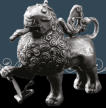
The new Moroccan musical scene, which appeared in the middle of
the ‘90s, has become a substantial part of the country’s cultural
landscape.
Rappers, slam poets, reggae men and metal music artists, among others
(graffiti, break dance, etc.), initiated an authentic urban movement
which mixes different music styles and presents a multicultural
Morocco.
Jil Lklam, “the generation of words”, narrates its evolution from the
underground to the public scene, and places great importance on lyrics,
emblematic of a young generation that “makes itself heard: taboo
subjects, cool music, hard lyrics”. Through their
multilingual lyrics — Darija, Amazigh, mixed with
French, English or Spanish — these creative, dissident
artists express their longing for dignity, freedom and a
future, and their love for their country, with eloquence,
humour, anger and poetry.
This new generation of self-taught artists shows
sharpness and skill in writing and composing, together
with a resourceful push to be heard: they adopted the
American counter-culture’s “Do It Yourself” attitude of
the late ‘60s, interchange and supportive sharing. New
technologies and social networks help them to produce
and disseminate their music.
Thanks to Dominique Caubet’s and Amine Hamma’s
account, the interviews with experts in this new scene, a
meticulous selection of lyrics — reproduced in their
original language and translated into French — and
superb photographs, Jil Lklam pays homage to these
artists who give a voice to Moroccan youth.
Avec le soutien de - With the support of
Fondation BMCI - Groupe BNP Paribas
• 21 x 25,5 cm
• 254 pages
• 130 quadrichromies
• imprimé sur papier Sappi, Magno natural
• couverture souple
• ISBN : 978-9954-9631-0-4
En coédition avec les Éditions du Sirocco. Co-published with Éditions du Sirocco
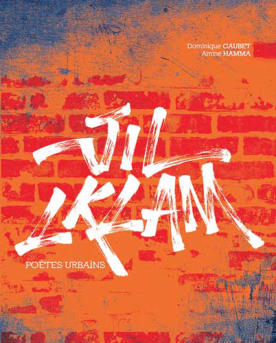
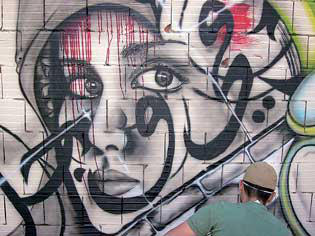
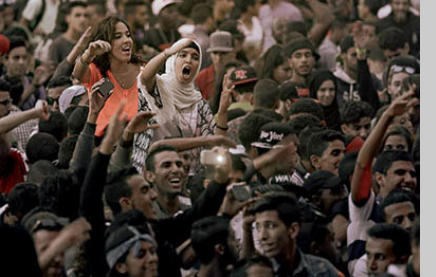
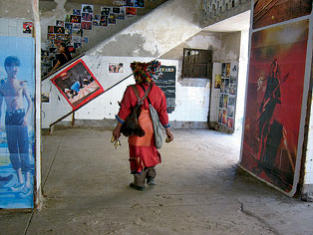
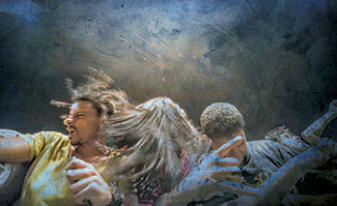
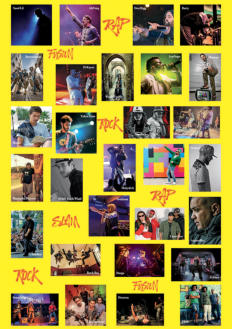
• 21 x 25.5 cm
• 254 pages
• 130 colour photographs
• printed on Sappi Magno natural paper
• softbound
• ISBN : 978-9954-9631-0-4
click on the image to enlarge












